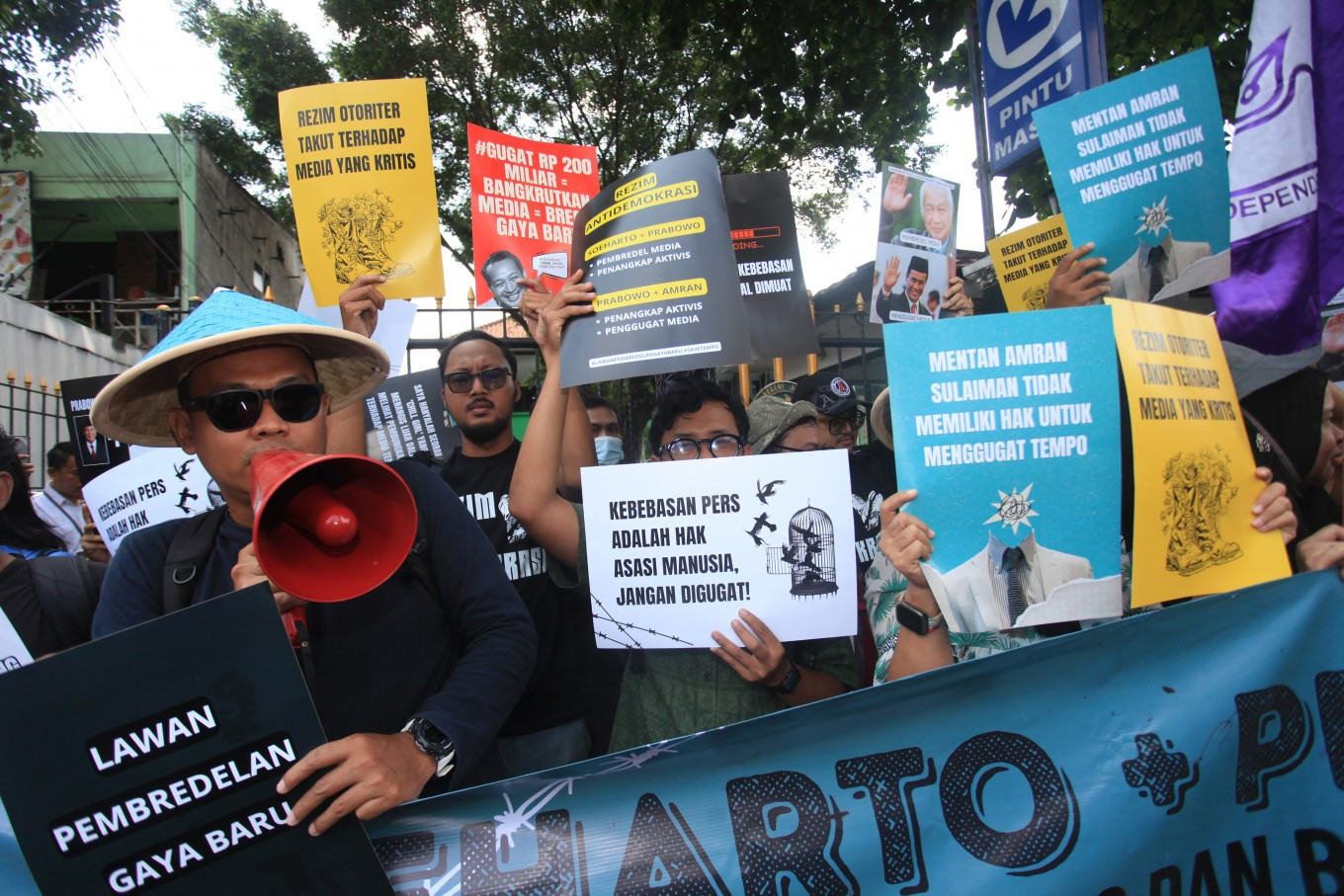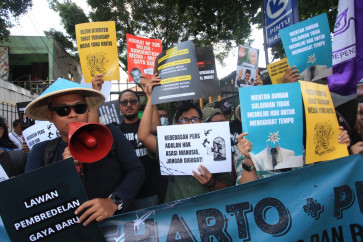Popular Reads
Top Results
Can't find what you're looking for?
View all search resultsPopular Reads
Top Results
Can't find what you're looking for?
View all search resultsAnalysis: Agriculture minister leads attack on press freedom
Change text size
Gift Premium Articles
to Anyone
T
he Rp 200 billion (US$12 million) civil lawsuit against Tempo magazine now being heard at the South Jakarta District Court has all the hallmarks of a concerted government campaign to silence critical media. The suit, filed by Agriculture Minister Amran Sulaiman, is so weak that the court should have dismissed it with prejudice.
That it is hearing the case, as well as the staggering amount of compensation being sought, suggests a more sinister agenda at work. The press community, led by the Alliance of Independent Journalists (AJI), has quickly caught wind of the broader danger the case poses to press freedom, and has organized many protests to rally support for Tempo and to get the court to drop the case.
President Prabowo Subianto has the power to order the minister to drop the case if he wants to, but then this is a President who is not known for respecting press freedom. Amran has filed the lawsuit in his official capacity on behalf of the ministry. It would have been a different story if he had filed for criminal defamation, which would be a personal issue and thus something in which the President could not intervene.
In addition, the Press Council has been surprisingly silent. The council had already ruled on the very matter brought in the lawsuit when it was submitted for arbitration. In fact, Amran filed the civil suit claiming that the magazine had not carried out the council's ruling, ordering Tempo to rectify a contentious opinion piece on the rice collected and distributed by the Agriculture Ministry. The Tempo editorial in question was originally titled "Stinky rice", but it has since been modified to the less offensive "Sticky rice", as ordered by the council.
The lawsuit essentially boils down to an interpretation of whether Tempo had carried out the council's order. In this context, the Rp 200 billion settlement sought seems outrageous and arbitrary, as this amount does not represent financial losses suffered by any party.
Tempo does not have that kind of money, and if the court decides against the publication, such a move would surely bankrupt one of the few remaining critical media outlets in the country.
The case has apparently had a chilling effect on the rest of the profession, according to journalists. Most media outlets are already struggling to stay afloat financially due to fierce competition, so they cannot afford legal and court fees, let alone pay compensation if they lose a court case. And more state officials would be emboldened to attack media critical of their policies, thanks to this case.



















